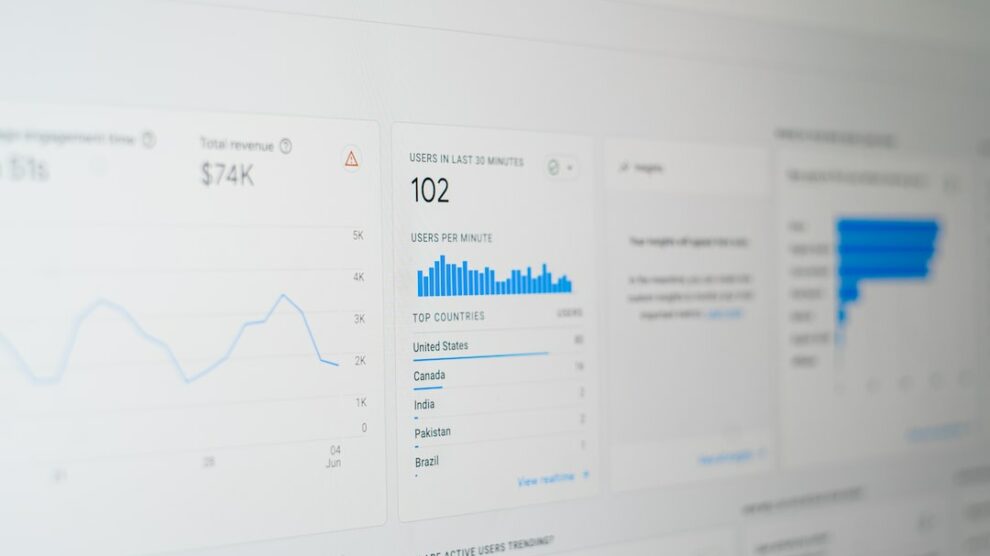Digital marketing tools refer to the various software, platforms, and technologies that businesses use to promote their products or services online. These tools are essential for businesses of all sizes as they help streamline marketing efforts, reach a wider audience, and measure the success of marketing campaigns. In today’s digital age, it is crucial for businesses to leverage these tools to stay competitive and effectively engage with their target audience.
Understanding the Different Types of Digital Marketing Tools Available
There are several types of digital marketing tools available, each serving a specific purpose in the overall marketing strategy. These include social media management tools, email marketing tools, SEO tools, content marketing tools, analytics tools, advertising tools, and customer relationship management (CRM) tools.
Social media management tools are designed to help businesses manage their social media presence more efficiently. These tools allow businesses to schedule posts in advance, monitor social media activity, engage with followers, and analyze the performance of social media campaigns. Examples of popular social media management tools include Hootsuite, Buffer, and Sprout Social.
Email marketing tools are used to create and send targeted email campaigns to a business’s subscribers or customers. These tools provide features such as email templates, automation workflows, A/B testing, and analytics to track the success of email campaigns. Popular email marketing tools include Mailchimp, Constant Contact, and ConvertKit.
Social Media Management Tools: Streamlining Your Social Media Presence
Using social media management tools can greatly benefit businesses by streamlining their social media presence. These tools allow businesses to schedule posts in advance, saving time and ensuring a consistent posting schedule. They also provide features for monitoring social media activity, such as mentions and comments, allowing businesses to engage with their audience more effectively.
Popular social media management tools include Hootsuite, which allows businesses to manage multiple social media accounts in one place and provides analytics to track engagement and reach. Buffer is another popular tool that allows businesses to schedule posts, analyze performance, and collaborate with team members. Sprout Social is known for its advanced social media listening capabilities, allowing businesses to monitor brand mentions and sentiment across various social media platforms.
When choosing a social media management tool for your business, it is important to consider factors such as the number of social media accounts you need to manage, the features you require, and your budget. It is also helpful to read reviews and compare different tools to find the one that best suits your needs.
Email Marketing Tools: Crafting Effective Email Campaigns
Email marketing tools are essential for businesses looking to create and send effective email campaigns. These tools provide features such as email templates, automation workflows, A/B testing, and analytics to track the success of email campaigns.
Using email marketing tools can benefit businesses by allowing them to create professional-looking emails using pre-designed templates. These tools also provide automation features, allowing businesses to set up email sequences and trigger emails based on specific actions or events. A/B testing is another valuable feature offered by email marketing tools, which allows businesses to test different subject lines, content, or designs to optimize their email campaigns.
Popular email marketing tools include Mailchimp, which offers a user-friendly interface, customizable templates, and advanced automation features. Constant Contact is another popular tool known for its drag-and-drop editor and robust analytics. ConvertKit is a favorite among bloggers and content creators for its simplicity and powerful automation capabilities.
When choosing an email marketing tool, consider factors such as the size of your email list, the level of automation you require, and your budget. It is also important to ensure that the tool integrates with your existing CRM or other marketing software.
SEO Tools: Optimizing Your Website for Search Engines
SEO (Search Engine Optimization) tools are crucial for businesses looking to optimize their website for search engines and improve their organic search rankings. These tools provide insights into keyword research, on-page optimization, backlink analysis, and competitor analysis.
Using SEO tools can benefit businesses by helping them identify the most relevant keywords to target in their content, optimize their website’s structure and meta tags, and analyze their backlink profile to improve their search engine rankings.
Popular SEO tools include SEMrush, which offers a comprehensive suite of SEO tools including keyword research, site audit, and competitor analysis. Moz is another popular tool known for its keyword research capabilities and link building features. Ahrefs is favored by many SEO professionals for its backlink analysis and content research tools.
When choosing an SEO tool, consider factors such as the level of keyword research and analysis you require, the size of your website, and your budget. It is also important to ensure that the tool provides accurate and up-to-date data.
Content Marketing Tools: Creating Engaging Content for Your Audience

Content marketing tools are designed to help businesses create and distribute engaging content to their target audience. These tools provide features such as content ideation, creation, distribution, and analytics.
Using content marketing tools can benefit businesses by helping them generate ideas for content topics, create high-quality content using templates or editors, distribute content across various channels, and measure the success of their content marketing efforts.
Popular content marketing tools include HubSpot, which offers a comprehensive suite of content marketing tools including a blog editor, social media scheduler, and analytics dashboard. CoSchedule is another popular tool known for its content calendar and collaboration features. BuzzSumo is favored by many content marketers for its content discovery capabilities and influencer identification.
When choosing a content marketing tool, consider factors such as the type of content you create (blog posts, videos, infographics), the level of collaboration you require, and your budget. It is also important to ensure that the tool integrates with your existing marketing software.
Analytics Tools: Measuring the Success of Your Digital Marketing Efforts
Analytics tools are essential for businesses looking to measure the success of their digital marketing efforts. These tools provide insights into website traffic, user behavior, conversion rates, and other key metrics.
Using analytics tools can benefit businesses by helping them understand how their website is performing, which marketing channels are driving the most traffic and conversions, and how users are interacting with their website.
Popular analytics tools include Google Analytics, which is a free tool that provides comprehensive website analytics and integrates with other Google products. Adobe Analytics is another popular tool known for its advanced segmentation and reporting capabilities. Mixpanel is favored by many mobile app developers for its real-time analytics and user behavior tracking.
When choosing an analytics tool, consider factors such as the level of customization and reporting you require, the size of your website or app, and your budget. It is also important to ensure that the tool provides accurate and reliable data.
Advertising Tools: Reaching Your Target Audience with Paid Ads
Advertising tools are crucial for businesses looking to reach their target audience with paid ads. These tools provide features such as ad creation, targeting options, budget management, and performance tracking.
Using advertising tools can benefit businesses by allowing them to create targeted ads that reach their desired audience, optimize their ad campaigns based on performance data, and track the success of their advertising efforts.
Popular advertising tools include Google Ads, which allows businesses to create search ads, display ads, and video ads across the Google network. Facebook Ads is another popular tool known for its advanced targeting options and audience insights. LinkedIn Ads is favored by many B2B marketers for its professional audience targeting capabilities.
When choosing an advertising tool, consider factors such as the type of ads you want to create (search ads, display ads, social media ads), the level of targeting options you require, and your budget. It is also important to ensure that the tool provides robust reporting and optimization features.
Customer Relationship Management (CRM) Tools: Building Stronger Relationships with Customers
CRM (Customer Relationship Management) tools are essential for businesses looking to build stronger relationships with their customers. These tools provide features such as contact management, lead tracking, sales pipeline management, and customer communication.
Using CRM tools can benefit businesses by helping them organize and manage their customer data, track leads and sales opportunities, automate customer communication, and improve customer satisfaction and retention.
Popular CRM tools include Salesforce, which is a comprehensive CRM platform that offers a wide range of features for sales, marketing, and customer service. HubSpot CRM is another popular tool known for its user-friendly interface and integration with other HubSpot marketing tools. Zoho CRM is favored by many small businesses for its affordability and customizable features.
When choosing a CRM tool, consider factors such as the size of your customer database, the level of customization you require, and your budget. It is also important to ensure that the tool integrates with your existing marketing and sales software.
Choosing the Right Digital Marketing Tools for Your Business Needs
When choosing digital marketing tools for your business, it is important to consider several factors. First, assess your business’s specific needs and goals. Determine which areas of your marketing strategy could benefit from automation or optimization. Consider the size of your business and the scale of your marketing efforts.
Next, evaluate the features and capabilities of different tools. Look for tools that offer the specific functionality you require, such as social media scheduling or email automation. Consider the user interface and ease of use of each tool. Read reviews and compare different options to find the one that best suits your needs.
Finally, consider your budget. Some digital marketing tools offer free versions or trial periods, while others require a monthly or annual subscription fee. Consider the value that each tool provides in relation to its cost. Remember that investing in the right tools can greatly improve your marketing efforts and ultimately lead to a higher return on investment.
In conclusion, digital marketing tools are essential for businesses looking to effectively promote their products or services online. These tools help streamline marketing efforts, reach a wider audience, and measure the success of marketing campaigns. By understanding the different types of digital marketing tools available and choosing the right ones for your business needs, you can greatly enhance your marketing strategy and achieve better results.
FAQs
What are digital marketing tools?
Digital marketing tools are software or online platforms that help businesses and marketers to plan, execute, and measure their digital marketing campaigns. These tools can be used for various purposes such as social media management, email marketing, search engine optimization, content creation, and analytics.
What are the benefits of using digital marketing tools?
Digital marketing tools can help businesses to save time, increase efficiency, and improve the effectiveness of their marketing campaigns. They can also provide valuable insights and data that can be used to optimize future campaigns and improve ROI.
What are some popular digital marketing tools?
Some popular digital marketing tools include Google Analytics, Hootsuite, Mailchimp, SEMrush, Ahrefs, Canva, and Buffer. These tools are widely used by businesses and marketers to manage their digital marketing campaigns and improve their online presence.
How do I choose the right digital marketing tools for my business?
Choosing the right digital marketing tools depends on your business needs, budget, and goals. It is important to research and compare different tools based on their features, pricing, and user reviews. You can also consult with digital marketing experts or attend industry events to learn about the latest trends and tools in the market.
Are digital marketing tools expensive?
The cost of digital marketing tools varies depending on the type of tool and the features it offers. Some tools are free or offer a basic version for free, while others require a monthly or annual subscription fee. It is important to consider the ROI and potential benefits of using a tool before investing in it.









Add Comment